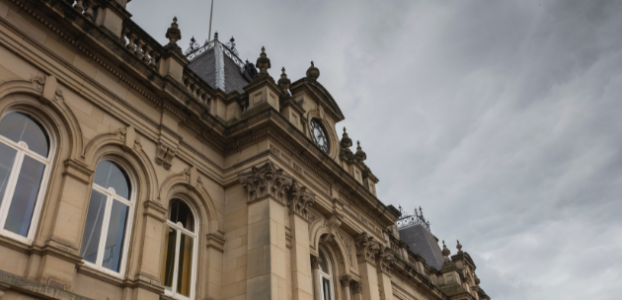Greater Manchester has enjoyed plenty of attention recently thanks to its ability to secure a landmark devolution deal with the Chancellor, which is in turn helping to pave the way for devolution to other city and county regions across England and Wales.
But lurking behind the headlines are some useful lessons around the steps that Greater Manchester took to get there, not only in encouraging formal collaboration between council leaders across the city-region, but in developing a stronger understanding of the local economy and of the consequences – both good and bad – of their policy decisions.
For Greater Manchester, their success and ability to convince the Chancellor to hand over power from the centre, is rooted in their policymaking being ambitious and heavily evidence-led.
Our recent case study, written by John Holden at New Economy and Alan Harding at the University of Liverpool Heseltine Institute, outlines the strategic approach Greater Manchester Authorities took to identifying the gaps in knowledge about the city economy, and how they made the most of the intelligence gained.
While every place is unique, and the scale and access to capital to build an evidence-base in Manchester may be difficult to replicate everywhere, this case study highlights important lessons for policymakers around building the evidence, and crucially, for making sure local partners accept the outcome, and act on it.
1. Recognise that developing an evidence-led approach is a long-term project
The first lesson for any policymaker is to be aware that entrenching an ‘evidence ecosystem’ is a long process. It starts with embedding evidence in specific projects, but real results will be borne out of developing effective decision making structures, alongside robust research.
2. Create demand for evidence, don’t just create evidence
Demand for the evidence from key decision makers able to exert influence on policy should be developed ahead of, or at least alongside its supply. Without this demand from those who matter, it is likely that little change will take place.
3. Bring your partners along
Rarely in the development of local economic growth policies in the UK can one organisation act in isolation, the interdependencies between different parts of the system are too great. Similarly, without engagement, evidence can be viewed as being skewed towards one organisation’s or individual’s priorities.
4. Encourage external challenge
Externally verified evidence – whether from academia, business or other parts of government – should be welcomed. It helps ensure that findings are seen as robust, and makes difficult findings harder to ignore.
5. Acknowledge and address negative findings
Evidence-based policy making needs to take the bad with the good, and findings that show historic approaches did not work, or new proposals as flawed are at least as important as knowing what has or is likely to work. This too can fuel debate, and innovation in policy.
6. Create compelling narratives
To take evidence from page to policy, developing an accessible and engaging narrative to a wide audience is essential. In Manchester’s case, the right presentation of the evidence, helped lead them to securing the recent devolution deal.
7. Use it or lose it
Fostering good relationships across the local authorities and ensuring both political and official leadership understand the usefulness of the evidence gathered means that the evidence will help drive their decisions. If evidence isn’t seen to be acted on, it will quickly lose currency.
8. Shape your own destiny
And the final lesson, always seek to develop evidence that is useful for understanding and responding to local economic growth, rather than simply responding to externally imposed requirements (by central government or other funding bodies). This will help to shape ambitious, locally-focused plans, based on clearly defined local need.
You can read the full case study from New Economy and the Heseltine Institute in our resources section.







